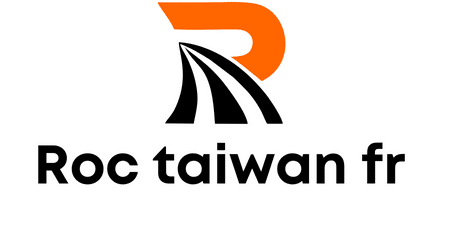Does the Integration of Humor in Health Education Lead to Better Patient Outcomes?

Life in the modern world can be stressful, especially for those dealing with health challenges. In such circumstances, we often overlook the therapeutic value of humor. However, numerous scholars have begun to explore the potential benefits of integrating humor into health education in an effort to improve patient outcomes. This article examines the role of humor in patient care, focusing on its impact on health education and communication, its potential in social group interventions, and its place in psychotherapy.
The Role of Humor in Patient Care and Health Education
Humor has long been recognized as a powerful tool in social dynamics. It can lighten the mood, stimulate conversation, and create an environment conducive to learning. In the realm of health education, humor can serve as a critical bridge, breaking down barriers that often exist between healthcare providers and patients.
Avez-vous vu cela : How Does a Mediterranean Diet Influence the Long-Term Health of Heart Transplant Recipients?
A Google Scholar search yields numerous academic papers and studies supporting the use of humor in health education. PubMed, a free search engine primarily accessing the MEDLINE database of references and abstracts on life sciences and biomedical topics, also provides compelling evidence of humor’s positive effects on patient care.
For instance, a study published in the Journal of Medical Education showed that humor leads to increased patient satisfaction and improved health outcomes. By analyzing data collected from patient surveys, the researchers found that those who reported humorous interactions with their healthcare providers showed greater understanding of their health condition and were more likely to follow care recommendations.
Cela peut vous intéresser : How Can Digital Art Therapy Be Used to Support Mental Health in Remote Populations?
Humor and Communication in Healthcare: An Effective Tool?
Humor can profoundly impact the relationship between patients and healthcare providers, thereby influencing communication dynamics. A positive communication climate, as facilitated through humor, can establish trust, promote understanding and encourage adherence to medical advice.
According to several studies indexed in Crossref, a digital object identifier (DOI) registration agency for scholarly works, the use of humor in healthcare communication can significantly enhance the therapeutic relationship. In a healthcare setting, the effective use of humor can transform a patient’s perception of care, transforming it from an intimidating or dehumanizing experience into a positive, humanizing one.
For example, a study published in the Journal of Advanced Nursing reported that nurses who employed humor in their communication with patients noted a decrease in patient anxiety and an improvement in overall patient satisfaction.
The Potential of Humor in Social Group Interventions
Group interventions, where patients gather and engage in therapeutic activities or discussions, can be significantly enhanced with a touch of humor. Studies suggest that humor can foster a sense of cohesion and camaraderie among group members, creating a supportive environment conducive to healing and growth.
One such study, available on PubMed, illustrates this potential. The study focused on a group of cancer patients who regularly attended a humor therapy group. The researchers found that humor helped these patients cope with their illness, alleviating their stress and anxiety and enhancing their overall well-being. Moreover, humor also facilitated social bonds within the group, creating a supportive network that further boosted the patients’ mental health.
Humor and Its Place in Psychotherapy
Psychotherapy aims to help individuals, couples, or groups overcome their personal or interpersonal challenges by understanding and resolving problematic thoughts, behaviors, feelings, or relationship issues. In this context, humor can serve as a powerful therapeutic tool, facilitating the exploration of painful or difficult topics.
A comprehensive review of the literature on the use of humor in psychotherapy, available on Google Scholar and indexed in Crossref, reveals that humor can help decrease resistance in therapy, increase rapport between therapist and patient, and provide a new perspective on difficult issues, thereby facilitating change and growth.
For instance, a study published in the Journal of Clinical Psychology showed that therapists who incorporated humor into their sessions noted increased patient engagement, better therapeutic alliance, and more significant progress in therapy.
In conclusion, the integration of humor into health education and care holds the potential to tremendously enhance patient outcomes. However, it is vital to note that humor must be employed judiciously, taking into account the individual’s personality, cultural background, and the nature of their health condition. It is a delicate tool that, when used correctly, can boost the healing process and uplift the human spirit.
The Impact of Humor Styles on Patient-Centered Care
Patient-centered care emphasizes the partnership between practitioners and patients, where patients are active participants in their health management. The integration of humor in patient-centered care can further empower patients, fostering positive emotions, resilience, and active participation in their care.
A study available on Google Scholar and indexed in Crossref supports this notion. The research concentrated on the use of various humor styles in a patient-centered care setting. It concluded that the appropriate use of humor facilitated a shift in the power dynamics, making patients feel more in control and more comfortable participating in decision-making regarding their treatment.
However, the effectiveness of humor largely depends on its style. A PubMed abstract of a study on humor styles revealed that self-enhancing and affiliative humor were linked with positive health outcomes. Conversely, self-defeating and aggressive humor did not yield such benefits and could potentially harm the therapeutic relationship.
Moreover, humor coping strategies can also influence patient outcomes. According to a Crossref full text Google search, humor coping involves using humor to manage stress or adversity. In a healthcare setting, humor coping can empower patients to face their health challenges with strength and positivity.
In essence, the impact of humor in patient-centered care is multifaceted and largely depends on the humor styles used and the individual’s humor coping strategies. It is a delicate balancing act that requires sensitivity, understanding, and skill on the part of the healthcare provider.
Physical Activity Intervention With a Humor Twist
Physical activity is crucial for overall health and well-being. In health intervention programs aimed at promoting physical activity, incorporating elements of humor can help increase participant engagement and enjoyment, ultimately leading to improved health outcomes.
A Crossref Google search brings up several studies where humor is employed in physical activity interventions. For example, a study indexed in DOI Crossref examined the impact of humor in a physical activity intervention among elderly patients. The study concluded that humor enriched the experience, made it more enjoyable, and encouraged greater participation.
In another research, a control group participated in a regular physical activity intervention program, while the experimental group was engaged in a similar program that integrated humor. The study, available as a PubMed abstract, revealed that the group exposed to humor showed increased adherence to the physical activity program, improved mental health, and better overall health outcomes.
The potential of humor in health interventions extends beyond physical activity. According to a Google Scholar full text search, humor interventions have been applied in areas such as mental health, addiction, and chronic disease management, consistently showing promising results.
Conclusion
The integration of humor into health education and patient care, as demonstrated by numerous studies available on platforms such as Google Scholar, Crossref, and PubMed, can significantly enhance patient outcomes. It fosters a closer bond between healthcare providers and patients, improves communication, assists in stress and anxiety reduction, and encourages active participation in care and treatment.
However, it’s crucial to remember that the use of humor in healthcare must be nuanced and carefully applied, considering factors like the individual’s humor styles, their humor coping mechanisms, cultural background, and the nature of their health condition. As a therapeutic tool, humor holds immense potential, but it’s its judicious use that can truly contribute to transforming healthcare experiences and outcomes. The power of a well-timed joke or lighthearted conversation can be a significant addition to the healing process and overall patient satisfaction. The use of humor in healthcare, when done right, can indeed humanize the process, making it more relational and less transactional.
